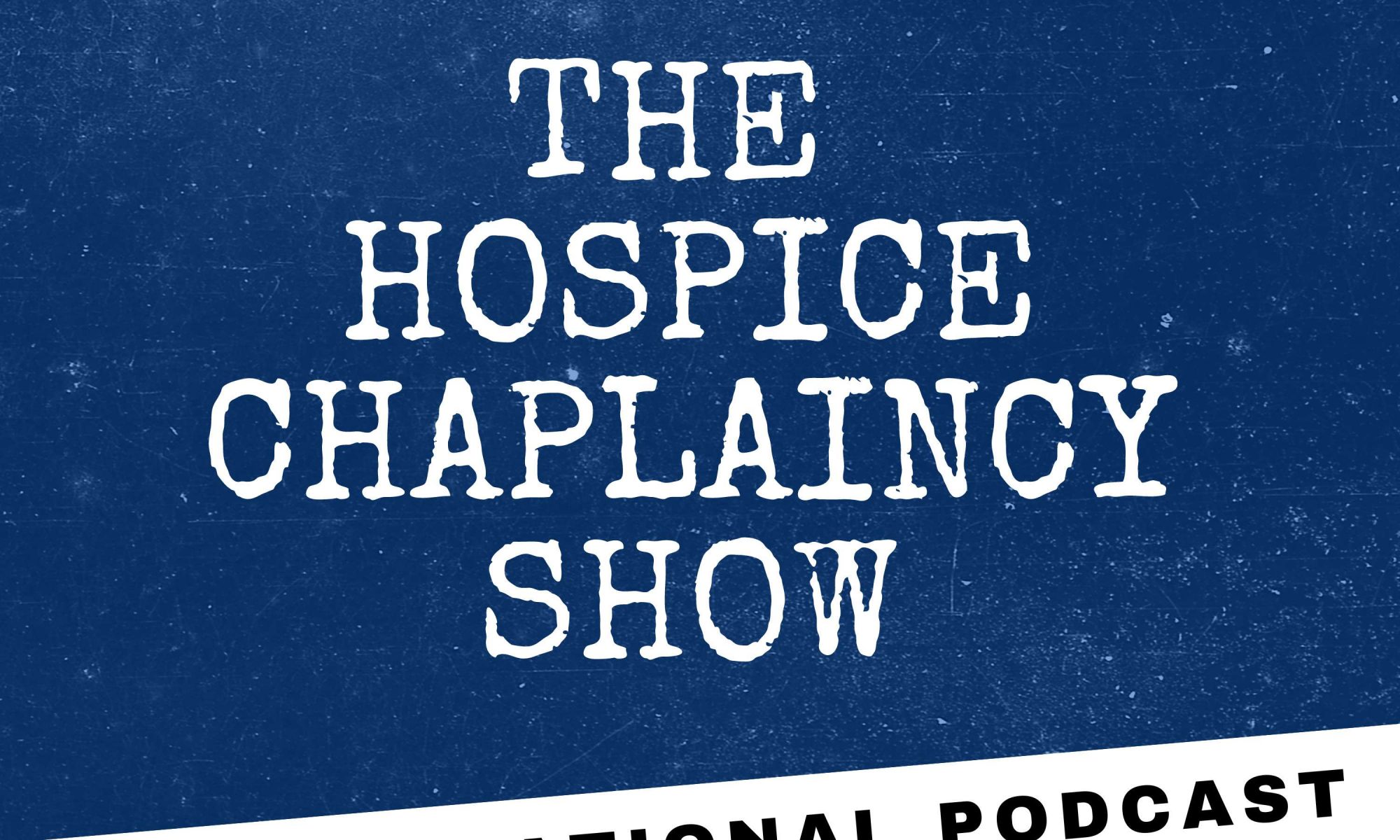In today’s episode, Saul talks to Dr. Jeremy Holloway on Social Isolation in older adults and Tellegacy. Dr. Holloway is a speaker, consultant, and cross-cultural communication educator. He is also a Geriatric Professor and Director of Geriatric Education at the University of North Dakota, specializes in diversity, equity, & inclusion with a unique focus in cross-cultural communication, human connection, resiliency, self-efficacy, and personal empowerment of individuals, especially in the healthcare workforce. You can find out more about Dr. Holloway at http://www.jeremyholloway.com
Episode 144: A conversation with Pamela Coley on her experiences as a hospice nurse
In today’s episode, Saul talks to Pamela Coley, a former hospice nurse to reflect on her experience of working in hospice. Prior to hospice, she also worked as a school nurse and currently also does some local acting. She is passionate about her faith and about educating people on what happens as we die.
Episode 143: The intersection between sports, living well and dying well
In Today’s episode, Saul talks to Dr. Leanne Griffiths on the intersection between sports, living well and dying well. Dr. Griffiths is the Dean of Faculty, Sport, Technology and Health Sciences (FSTHS) at St. Mary’s University in Twickenham, London.
As Dean of Faculty, Dr. Griffiths is responsible for the expansion and development of our contemporary portfolio of programmes, the day to day management of Faculty matters and ensuring a positive working environment for staff and students.
Dr. Griffiths started working at St Mary’s University as a Senior Lecturer in Sport Rehabilitation in 2011 and has been a Head of Department for Sport and Exercise Science for a number of years. She has overseen the growth and implementation of many new programmes and the expansion of sporting facilities.
Dr. Griffiths qualified as a Physiotherapist in 2008 from Keele University and completed her PhD in 2016. Her PhD investigated the effects of neuromuscular electrical stimulation on muscle adaptation in stroke patients. Her clinical time working within the NHS puts her in an excellent position to lead St Mary’s through an exciting expansion of Allied Health provision within the Faculty.
Episode 142: A conversation with Shelby Forsythia on her book “Your Grief, Your Way.”
In Today’s episode, Saul talks to Shelby Forsythia about her book, “Your Grief, Your Way.” Shelby Forsythia (she/her) is a grief guide, author, and podcast host. In 2020, she founded Life After Loss Academy, an online course and community that has helped dozens of grievers grow and find their way after death, divorce, diagnosis, and other major life transitions.
Following her mother’s death in 2013, Shelby began calling herself a “student of grief” and now devotes her days to reading, writing, and speaking about loss. Through a combination of mindfulness tools and intuitive, open-ended questions, she guides her clients to welcome grief as a teacher and create meaningful lives that honor and include the heartbreaks they’ve faced. Her work has been featured in Huffington Post, Bustle, and The Oprah Magazine.
Episode 141: A conversation with Karen Oikonen and Kate Wilkes on Constellations: An intersection between design and end of life
In today’s episode, Saul talks to both Karen Oikonen and Kate Wilkes on “Constellations: Designing participatory engagement and end of life.”
Kate Wilkes is a service designer based in Toronto, Canada. Passionate about meaningful collaboration, Kate is always keen for opportunities to leverage diverse perspectives to make sense of complex problems in pursuit of impactful solutions. Kate studied at the University of Toronto, George Brown College’s Institute without Boundaries, and the Dun Laoghaire Institute Of Art, Design + Technology in Ireland. Kate’s interest in the death, dying, and the end of life period is rooted in her own experience navigating her mother’s illness and death in 2015.
Karen Oikonen is also a designer based in Toronto, Canada. Shas a Bachelor of Interior Design from the University of Manitoba and a Masters of Design in Strategic Foresight and Innovation, from OCAD University. She teaches design research at OCAD University and design thinking at Sheridan College – She finds that having a foot in an academic environment challenges her perspective and is deeply fulfilling. Her experience in health care helped to develop a rigorous approach to research while allowing her to engage directly with patients, caregivers, and clinicians – this helped shape her exploratory path to innovation design – from visual and spatial design to service design and design research.
You can find the constellations images here.
Episode 140: A conversation with Masey Kaplan on the Loose Ends Project
In today’s episode, Saul talks with Masey Kaplan who is one of the founders of the Loose Ends Project about the Loose Ends Project and the therapeutic value it brings to end of life care. Masey Kaplan is a graphic designer and voracious knitter. The idea for Loose Ends Project came about when Masey Kaplan and Jennifer Simonic, both avid knitters, realized that they had a shared experience: Friends would often ask them to finish blankets, sweaters, or other projects left undone by deceased loved ones. They always do so enthusiastically, understanding what it feels like to wear something a loved one has made.
Episode 139: A conversation with Juli Boit about her new book, “Brave Love: A Nurse’s Story of Courage and Compassion in a Kenyan Hospice.”
In Today’s episode, Saul talks to Juli Boit about her new book, “Brave Love: A Nurse’s Story of Courage and Compassion in a Kenyan Hospice.” In 2004, at just 25 years old, Juli Boit embarked on a remarkable journey from her home in Los Angeles to a remote Kenyan village of Kipkaren River. Driven by a profound calling and desire to make a difference, Juli witnessed firsthand the devastating impact of HIV/AIDS on the local community, particularly among young adults and children. Year after year, she dedicated herself to caring for the sick and dying alongside her Kenyan colleagues.
Now, nearly two decades later, Juli has gathered a collection of stories that reveal the essence of her courageous and compassionate journey. Her new book, “Brave Love: A Nurse’s Story of Courage and Compassion in a Kenyan Hospice” is a powerful testament to the transformative power of love and will be released on November 6, 2023. Brave Love invites readers to explore the heart and soul of hospice care in Kenya, offering a beacon of hope in even the most challenging circumstances.
Guided by the question, “What does it look like to love in this situation?” Juli dives deep into the essence of love in challenging circumstances, something we can all relate to. And Juli will tell you that loving your neighbor can happen anywhere – both in a Kenyan hospice and right down the street.
Amazon (two books):
Episode 137: A conversation on one of the first of its kind “A Guided Journal for the Bereaved Muslim Parent.”
In Today’s episode, Saul talks with Paul Nash- Senior Chaplain at Birmingham Women’s and Children’s Hospital in the England , Arooj Rashid Hussain- Editorial Director at Ta Ha Publishers and Zamir Hussain- Author and Chaplain at Birmingham Women’s and Children’s Hospital in the England. The conversation is on Zamir’s ground breaking new publication “A Guided Journal for the Bereaved Muslim Parent.”
Zamir Hussain is a UK-based Muslim Healthcare Chaplain since 2007 and a qualified teacher. She holds an Honours degree in Islamic studies and PGCE in Religious Education as well as a Certificate of Muslim Chaplaincy and is a qualified hijama therapist, and life coach.
She has several publications, including Palliative care booklet and books for bereaved Muslim parents and siblings. And has led on multi-faith resources and books for Healthcare Chaplaincy, as well as developing Spiritual care activities for sick children and their families. She has also developed the first UK blended learning resource, which includes, virtual rooms online training programme, care plans and pathways for lslamic daily, palliative, end of life and bereavement care for paediatric staff.
Zamir has worked as a Muslim Chaplain for both the Heart of England NHS Trust and Birmingham women’s and Children’s hospital where she has run training courses for staff on caring for the Muslim patients and their families Zamir has spoken at end of life and bereavement conferences and delivered training workshops and lectures on care for Muslim patients to organisations across the country.
You can purchase the journal here.
Episode 136: A conversation with Abby Brockman on her life’s journey and work
In Today’s episode, Saul talks to Abby Brockman about her life’s journey and work. Abby Brockman is a Jewish board-certified clinical trauma chaplain. She received her Masters of Divinity from Boston University’s School of Theology, completed her clinical residency at the Seattle VA hospital, and worked as a staff chaplain for many years at Seattle Children’s Hospital on their Cancer Care Unit, Pediatric Intensive Care Unit, and In-patient Psychiatric Unit. She specializes in trauma, grief and loss, and end-of-life work and recently started her own private practice to provide spiritual care. Her work is deeply informed by an anti-oppression ethic, she’s passionate about advocating for a systemic lens and power analysis in all conversations about mental health and wellness, and believes there are gateways to holiness everywhere.
Episode 135: A conversation with Dr. Jonathan Singer on grief issues in end of life care
In Today’s episode, Saul talks to Dr. Jonathan Singer on grief issues around end of life care. Dr. Singer is the assistant professor of clinical psychology at Texas Tech University.
Some of the research that Dr. Singer has been part of that is covered in this episode;
- Examining public stigma and expectations of grief following medical aid and dying in the US: A vignette-based experiment. Palliative and Supportive Care 21 ,270276.
- Pandemic grief risk factors and prolonged grief disorder in bereaved young adults during COVID-19
Education:
B.A., Adelphi University
M.A., Teacher’s College, Columbia University
Ph.D, University of Nevada, Reno
Lab Website: The GRILL Lab


